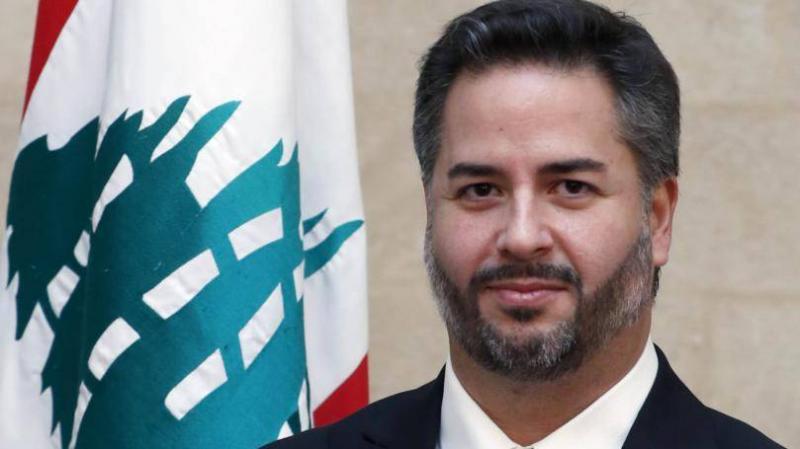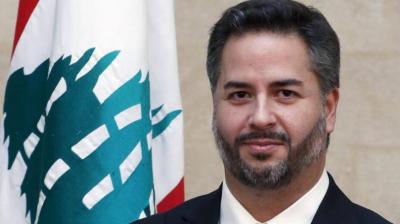The Minister of Economy and Trade in the caretaker government, Amin Salameh, discussed the issue of the customs dollar and its impact on food prices during a press conference held in his office at the ministry. He stated, "We called for this press conference urgently to clarify key matters to the Lebanese citizen to be aware of what is happening with us. This is our duty after news of the rise in the customs dollar and the change in the dollar exchange rate in the 2022 budget, particularly its impact on food items."
He emphasized that "the goal of the conference is to comfort the citizens and address the implications of the customs dollar increase on food commodities and food security." He explained, "When the government studied the 2022 budget, it was not clear enough to public opinion that it was an exceptional budget, and that the customs dollar is part of it, which is due to extraordinary economic and financial conditions."
He added, "The 2022 budget was studied to have an exceptional character, addressing the situation of a troubled country and a public sector that we all know, with unacceptable treasury revenues. In a country where the state is held accountable through public finances based on a dollar price of 1,500 LBP, a change should have happened earlier. Continuing with the customs dollar as is currently cripples the state's finances and is exploited by the private sector."
He continued, "In the car sector, for example, Lebanon has not seen the importation of luxury cars as has happened in the last seven months. Cars costing hundreds of thousands of dollars have entered to benefit from the current customs dollar based on 1,500. One car’s customs cost was $50,000 according to its classification, while the tax on it, according to the current customs dollar price, is 75 million LBP, which is about $2,000 instead of $50,000. This is not fair or just to the public treasury."
He stressed that "there is a country that needs to be managed, public administrations, and salaries," and noted, "We saw what happened to the public sector; we must secure revenues because all countries in the world secure their revenues from taxes, customs, and others."
He stated, "As the Minister of Economy, I wanted to clarify that upon returning to study the budget, there were numbers and foundations indicating that there is no possibility of continuing with a customs dollar based on 1,500, as the state will collapse. Consequently, the public sector will collapse, along with salaries that have become a reality. To improve them, a modification must be undertaken, leading us to the customs dollar."
He mentioned, "There was talk about setting the customs dollar at 12,000, and there were demands from the private sector for it to be set at 8,000 and other figures. However, this matter was being studied to ensure its repercussions were acceptable to society, prioritizing the citizen and consumer before the state."
He pointed out that "a large number of ministers and advisors clarified that these taxes would hit luxuries, which is a vague description." He said, "In reality, they target luxuries and other things. In all countries, there are tax margins similar to those we are working with. It is fair and just to apply the new customs dollar or the tax dollar to them, as it is impossible to continue at the price of 1,500; everyone is aware of this matter."
He added, "Two days ago, there was talk of making a decision to adopt the price of 20,000. I am not authorized today to fix this price as official. Prime Minister Najib Mikati submitted a request because the Minister of Finance and the Governor of the Central Bank are authorized to give the final word on any pricing to be implemented."
He mentioned that "the Minister of Finance will later clarify how this dollar will be variable," stating, "Regardless of the decision of the Minister of Finance and the Governor of the Bank, we are currently in the realm of the 20,000 price, a little less or more, depending on the official decision that will be issued."
He confirmed that "this price will help improve the state's finances, revive the public sector, and restore rights to employees for the public administrations to continue working, preventing the state from collapsing. It will help the state from six months to a year in overcoming the current crisis, and this matter is subject to later reconsideration and study, aiming for economic viability."
He concluded, "No decision has been made randomly. We used to hear about many matters decided randomly in budgets previously. Today, I affirm, specifically regarding the customs dollar, that it has been difficult for everyone to make the decision to raise it, regardless of the materials it will target. It will serve the public interest and the state treasury, ensuring that its repercussions do not directly harm the citizen."




